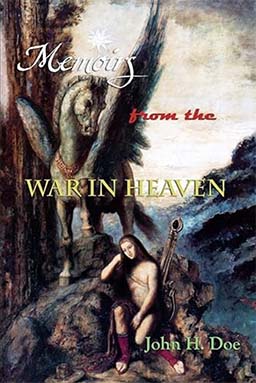> From this.
Science is basically composed of definitions, which build on other definitions, which ultimately has some basis in reality (in as accurate measurements as can be observed). Reason uses science to understand things. For its part, mathematics has been used as a prime method of modeling things, but any logic may be used for the definitions of the forms that we study (though none have generally been found as useful as mathematics). But in any scientific endeavor, we must start with trust. For what science can be trusted whose basis is not things that are in turn trusted by it? One does not lay down a foundation for an edifice on the shifting sands (of whim, of fancy, of want).
Scientists do not usually think of this: we trust that logic which determines things to be true will itself stay true. Yes, they rely on past findings to be true, but they generally don’t think they need to trust that truth will be true. But without this basic trust, science is impossible. That trust also allows one definition to be a basis for another, that the logical connective, if it is itself well defined, will hold for the time required to relate things. In science, we have basis to believe these fundamental things may be trusted; after much observation and study, we can say that it is well tested. Those unfamiliar with its methods should know: science does not exist in a vacuum, but has a great and storied history of being consistent with how things really are.
Now, if we can arm ourselves with science, one might try to start with nothing and end up with something. We will not really be able to, but we may find you can get close to such an ideal of creation ex nihilo. If we trust in the basic foundations of existence itself, which gives us a certain logic to form and function, we may start with the Cogito, and trust that we ourselves must exist. Then once we trust in our own existence, by that foundational logic again, one can trust that we sense things, and that these senses are consistent with a reality that exists for you and other people. Thus we may start building structures in our minds, from the foundations the first level of basic reasoning, on and on higher, once we find what we currently hold is sound.
This is what comes about with science: once we start to trust, we may carry that trust, build on that trust, so that we might better observe the world, and find more to build. Science is basically an architecture of architectures, not for buildings, but for knowledge. It is the means by which we know what exactly it takes to build a rocket, send it off into space, and drop off a satellite in orbit. It is by what we can make that satellite draw its power from the sun, and be of use to carry signals from one part of the world to another. But it is the beginning of the science of things when we start with the science of ourselves, once we have doubted all things — to find that in the doubt, there is a leap we may take that allows us to believe in something. We can trust, when we doubt all things. What better magic is there than this?



Leave Your Response
You must be logged in to post a comment.